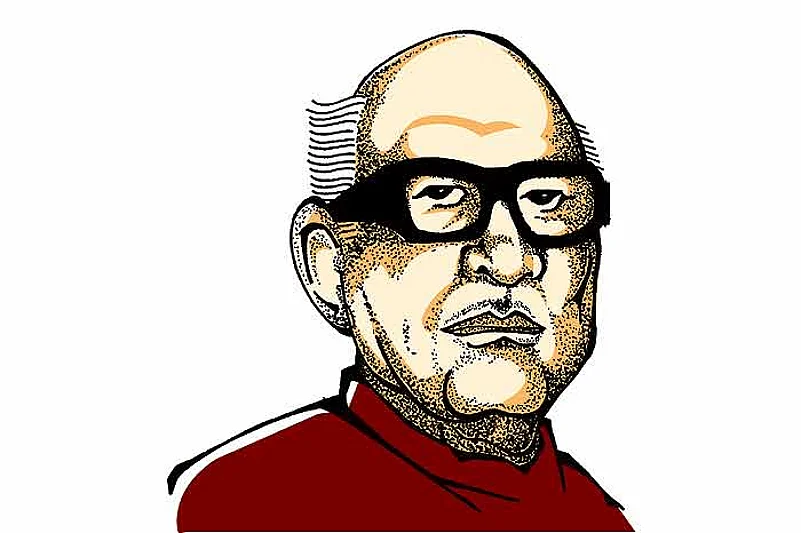Once upon a time there were only two news weeklies, Blitz and Current, owned and edited by two feuding Parsis. The Cold War was in full swing and one of them, Blitz, was staunchly pro-Soviet. The other was firmly in the American camp. Paradoxically, Blitz was also a fervent supporter of that despot, the Shah of Iran. Why that was so remains a mystery to this day. The two tabloids were highly opinionated and very loose with facts. Television and a more discerning readership killed them both.
I met Khwaja Ahmad Abbas in 1967 in the corridors of the Blitz’s decrepit office in downtown Bombay. He wrote ‘Last Page’, the paper’s popular column that he had brought along with him from Bombay Chronicle after that daily folded. The column began in 1935 and continued till Abbas’s death in 1987. It holds the distinction of being the longest-running column in the history of Indian journalism.
My column in Blitz was somewhere in the middle pages, under the grand and self-given title of ‘literary editor’. Though he was much older and quite famous, we became friends. I soon found myself being wined and dined by such Sea Lounge socialists as Rusi Karanjia, editor of Blitz, Balraj Sahni, and Rajni Patel, the lawyer who ran Bombay for Indira Gandhi. Once, to my astonishment, I was seated at a dinner table next to Madame Binh, the foreign minister of Ho Chi Minh’s government-in-exile.
Abbas was very versatile. Besides being a journalist, he wrote novels, short stories and film scripts. He was fluent in three languages, Urdu, Hindi and English. He was not so successful as a producer and director of films. With the possible exception of Anhonee, starring Nargis and Raj Kapoor, none of his twenty or so films made any money. There was a reason for that. The films were not very good.
Abbas is credited with giving Amitabh Bachchan his first role in Saat Hindustani. In a generous foreword to I am Not an Island, An Experiment in Autobiography, the actor fondly recalls that the entire unit of that film travelled third class by train to Goa. That was all Abbas, the producer, could afford. Everyone slept on the floor at night in a government guest house that had no electricity.
While Abbas was dreadful at making films, he had a talent for writing wonderful screenplays that made heaps of money for others. He scripted some of the best Hindi films ever made, including Raj Kapoor’s Awara, Shri 420, Jagte Raho and Bobby. But Raj Kapoor was a notoriously bad paymaster and Abbas survived mainly on Rs 1,500 he received every month for his columns.
His film career began in 1936 as a part-time publicist for Bombay Talkies, a production house owned by Devika Rani and her husband. Abbas debuted as director ten years later with Dharti Ke Lal, about peasants struggling for survival during the 1943 Bengal famine. Another film, Rahi, based on a Mulk Raj Anand story, was on the plight of workers on tea plantations. Those were the kind of films he made. Dev Anand, not yet a star, had the lead role in Rahi and gave Abbas more trouble than any other actor.
Abbas consciously made commercial films and used stars whenever he could afford them and they were willing to work for him. But they were progressive, socially relevant films. He was the most prominent voice of the Left in Indian cinema at that time. In one of his last columns for Blitz, written while he was seriously ill and dying, Abbas said, “See any of the pictures I produced and you will meet me.”
I am Not an Island is a curious autobiography. This is its second incarnation. It was first published over thirty years ago. This abridged version has been put together by Suresh Kohli, who knew the man well. The book is still too long. It begins in ancient Medina where, apparently, one of Abbas’s ancestors was a friend of Prophet Mohammed.
As for the author, Abbas was born in Panipat, educated in Aligarh, and chose to stay back when many in his family migrated to Pakistan after Partition.
The volume deserves a better publisher. You cannot publish a biography of an eminent personality without an index. It is just not done. A list of all the films in which this wonderful man was involved would have been useful.






















